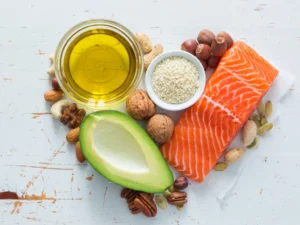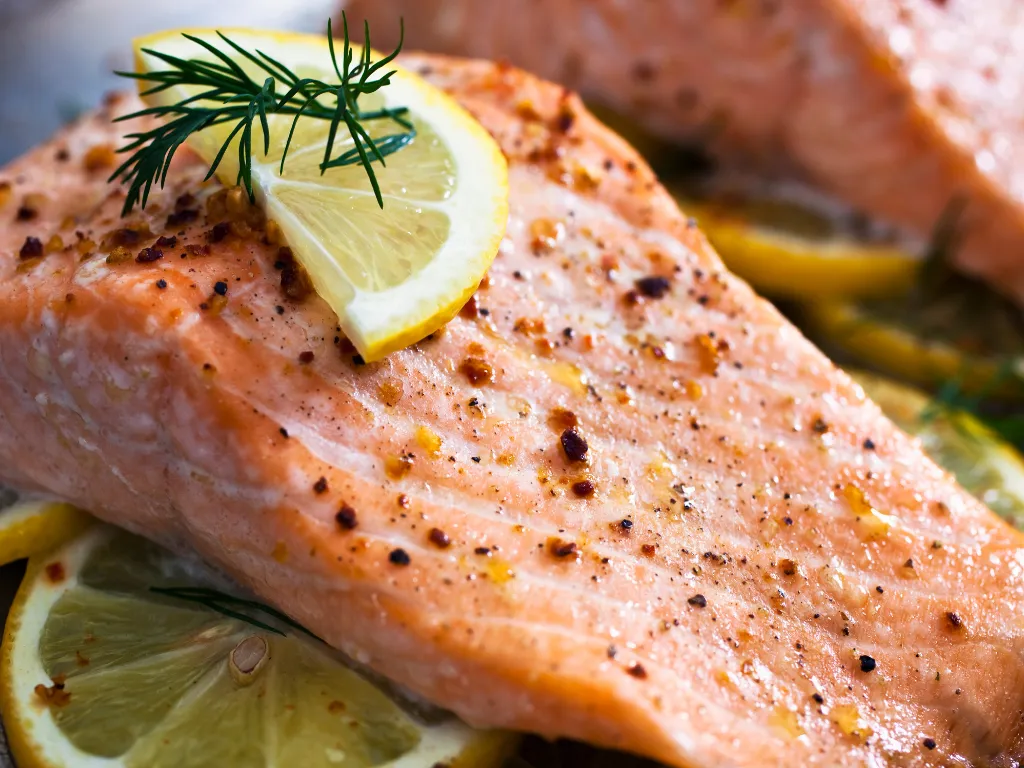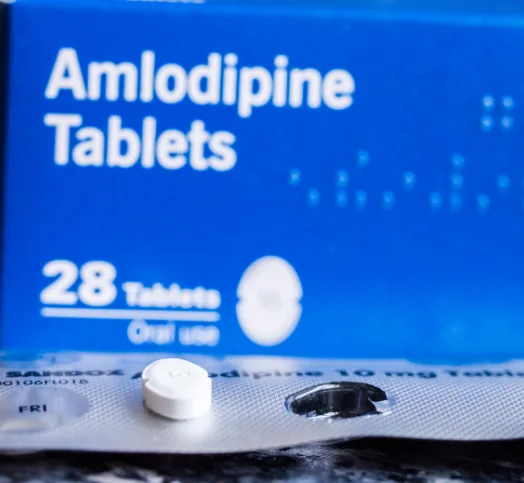Often lauded as a nutritional superstar, salmon plays a significant role in promoting heart health. But what exactly makes salmon such a healthy choice? This article will delve into the key elements that make salmon an outstanding addition to a heart-healthy diet.
What makes salmon so healthy?
Salmon is an excellent source of protein, omega-3 fatty acids, and vitamin D. Omega-3 fatty acids are essential fats that are important for heart health. They can help reduce inflammation, lower triglyceride levels, and decrease the risk of heart disease and stroke. In detail, salmon is:
Rich in Protein
Salmon is a potent source of high-quality protein. Protein is essential for various bodily functions, including the repair and growth of tissues. Incorporating salmon into your diet can provide the necessary protein while being a healthier alternative to red meats, which can be high in saturated fats and detrimental to heart health.
Omega-3 Fatty Acids: The Heart’s Best Friend
One of the standout features of salmon is its abundance of omega-3 fatty acids, particularly eicosapentaenoic acid (EPA) and docosahexaenoic acid (DHA). These essential fats are pivotal in maintaining heart health for several reasons:
- Reducing Inflammation: Omega-3s have potent anti-inflammatory properties. Chronic inflammation is a known contributor to heart disease, and consuming omega-3s can help mitigate this risk.
- Lowering Triglyceride Levels: High levels of triglycerides in the blood are associated with an increased risk of heart disease. Omega-3s, as found in salmon, can help reduce triglyceride levels, promoting cardiovascular well-being.
- Protecting Against Heart Disease and Stroke: Numerous studies have indicated that omega-3 fatty acids can significantly lower the risk of heart disease and stroke, making salmon a heart-protective choice.
Vitamin D: A Dual Benefit for Heart and Bone Health
Salmon is also a notable source of vitamin D, which offers a dual advantage for heart health and overall well-being:
- Heart Health: Research suggests a connection between vitamin D deficiency and an increased risk of heart disease. Adequate vitamin D levels may support cardiovascular health by reducing this risk factor.
- Bone Health: Beyond heart health, vitamin D is crucial for maintaining strong bones. It aids in calcium absorption, further bolstering overall health.

Salmon is an excellent source of omega-3 for optimal heart health. Please have a look at our article on good vs. bad fats here.
How can you incorporate salmon into your diet?
Here are some simple ways to incorporate salmon into your diet:
- Grilled or baked: Grill or bake salmon fillets and serve with roasted vegetables or a side salad.
- Canned salmon: Use canned salmon to make a salmon salad or mix it into pasta dishes.
- Smoked salmon: Use smoked salmon in salads, sandwiches, or topping for crackers.
- Salmon burgers: Make salmon burgers by mixing canned salmon with breadcrumbs, egg, and seasonings.
Salmon: Wild vs. Farmed?
The choice between farmed and wild salmon is a decision that many health-conscious individuals grapple with when considering their diet. Both options offer unique attributes, but understanding the differences is crucial in making an informed choice that aligns with your health goals.
Farmed Salmon: A Convenient Option
Pros:
- Availability: Farmed salmon is readily available year-round, making it a convenient choice for consistently consuming this heart-healthy fish.
- Consistency: Farmed salmon tends to have a uniform taste, texture, and size, making it predictable for cooking and meal planning.
- Price: It is often more affordable than wild salmon, making it accessible to a broader range of consumers.
Cons:
- Nutritional Variability: Farmed salmon may have lower omega-3 fatty acids and other nutrients levels than their wild counterparts, depending on their feed.
- Environmental Concerns: The farming practices of some salmon producers have raised environmental concerns, such as the potential impact on local ecosystems and water quality.
Wild Salmon: A Nutrient-Packed Choice
Pros:
- Nutrient Density: Wild salmon is renowned for its higher nutrient density, including greater omega-3 content, vitamins, and minerals.
- Omega-3 Fatty Acids: Wild salmon typically contains more omega-3 fatty acids, pivotal for heart health.
- Minimal Environmental Impact: Wild-caught salmon, when sourced sustainably, has a minimal environmental impact, contributing to healthier oceans.
Cons:
- Seasonal Availability: Wild salmon is only available during specific seasons and may not be as accessible year-round.
- Price: It can be more expensive than farmed salmon due to limited availability.
Making Your Choice
Your choice between farmed and wild salmon ultimately depends on your priorities:
- If convenience, cost, and availability are paramount, farmed salmon may be your preference.
- Wild salmon is superior if you prioritize the highest nutritional value and minimal environmental impact.
In either case, sourcing your salmon from reputable suppliers who prioritize sustainable and responsible practices is essential.
Air-Fried Salmon Burgers: Give this one a go!

Ingredients:
One can of salmon (preferably wild-caught)
1/2 cup whole-grain breadcrumbs
One egg
1/4 cup finely chopped red onion
1/4 cup finely chopped bell pepper (any color)
One teaspoon of dried or fresh dill
1/2 teaspoon garlic powder
1/2 teaspoon lemon zest
Cooking spray (preferably olive oil-based)
Whole-grain rye buns
Lettuce, tomato, and a heart-healthy sauce (like our Greek yogurt-based tzatziki) for toppings
Instructions:
- Drain and flake the canned salmon into a bowl.
- Add whole-grain breadcrumbs, egg, chopped red onion, bell pepper, dried dill, garlic powder, and lemon zest to the bowl. Mix until well combined.
- Shape the mixture into burger patties.
- Preheat your air fryer to 375°F (190°C).
- Lightly coat the salmon patties with cooking spray to help them become crispy in the air fryer.
- Place the salmon patties in the air fryer basket, leaving some space between each patty.
- Air fry the salmon burgers for about 8-10 minutes, flipping them halfway through or until they are golden brown and cooked.
- Serve the air-fried salmon burgers with lettuce, tomato, and a heart-healthy sauce on whole-grain rye buns.
Air-frying these salmon burgers reduces the need for additional cooking oil, making them a heart-healthy and delicious choice. Enjoy your nutritious and crispy salmon burgers!
Conclusion
Salmon’s reputation as a heart-healthy food is well-deserved. Its rich protein content, abundant omega-3 fatty acids, and vitamin D sets it apart as a nutritional powerhouse. By incorporating salmon into your diet, you enjoy a delicious meal and take significant steps toward promoting heart health, reducing inflammation, lowering triglyceride levels, and guarding against heart disease and stroke. It’s a small dietary change with substantial benefits for your well-being.











